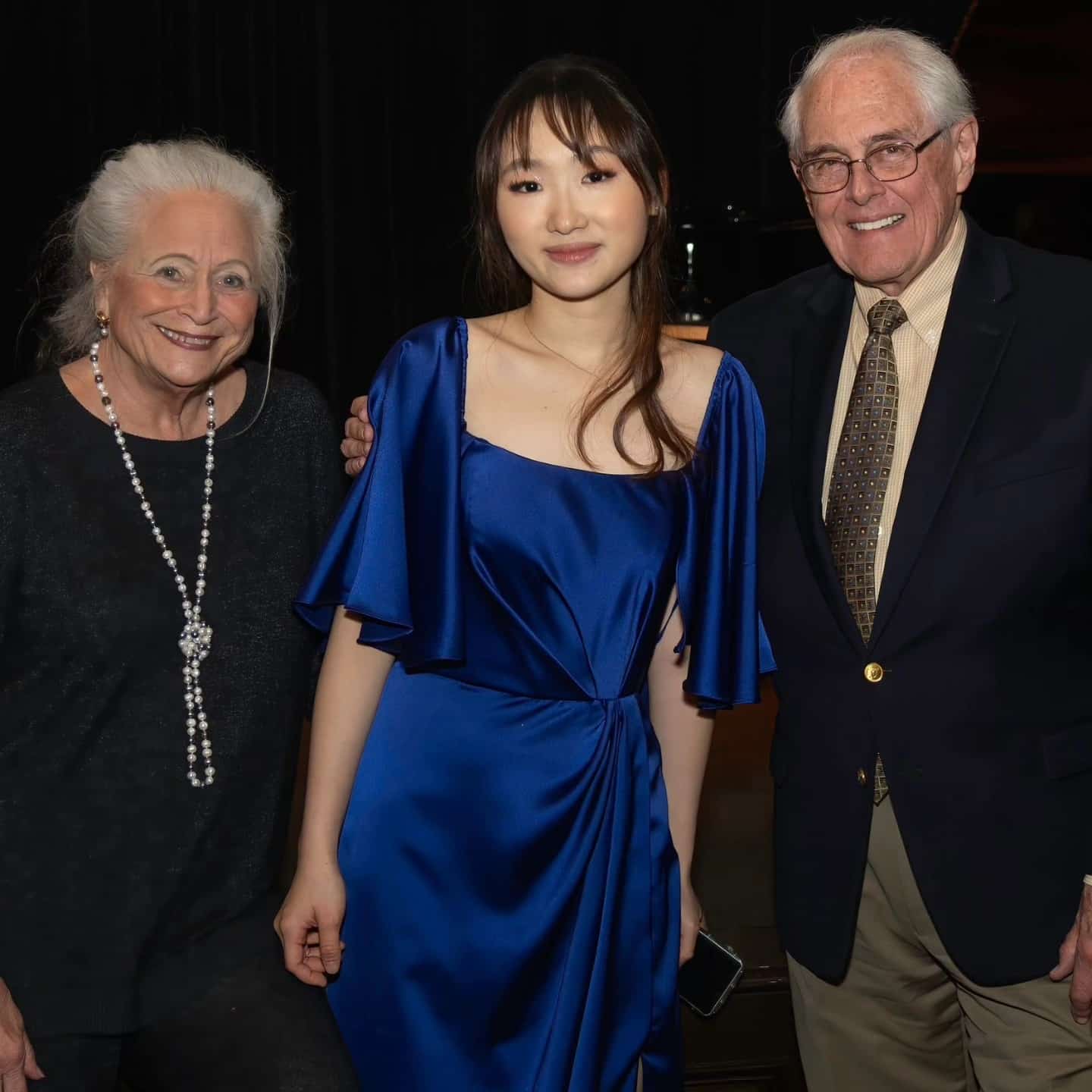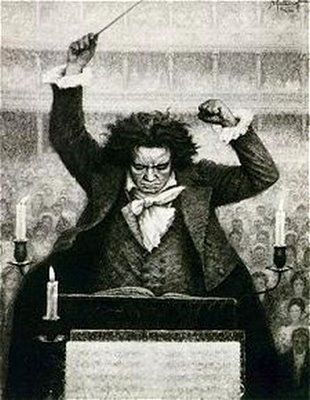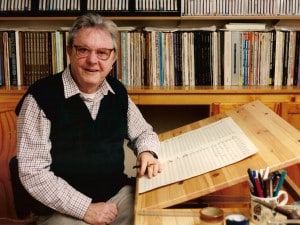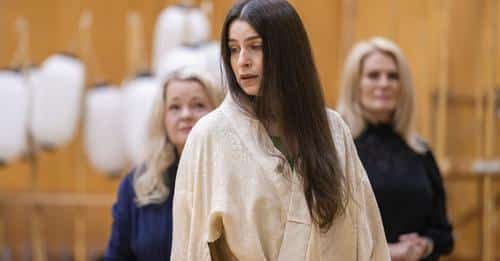The making of a Chinese piano star
NewsThe Chinese pianist Yung Yung Guo, 20, won the gold medal and $30,000 at the Gurwitz 2024 International Piano Competition in San Antonio, Texas, this weekend. It was her first visit to the US.
Her previous best performance at a major competition was 3rd prize in the Sydney International Piano Competition last year. She also won an online competition.
Her career details give a fascinating insight into the production curve of Chinese music careers:
Born in Hong Kong, Yungyung Guo began her piano study at the age of four. After instruction from
teachers Jia Xie and Meidan Guo, she graduated from the Affiliated Middle School of the Shanghai
Conservatory of Music. She has been awarded the People’s Scholarship, the Shanghai Scholarship, and
the Lily En-Teh New Scholarship.
Yungyung was awarded the Gold Medal with High Distinction from the (online) Manhattan International Music
Competition, and first prizes from the World Piano Teachers Association International Piano
Competition, San Francisco Artciál International Piano Competition, G-Clef International Music
Competition, Pacific Stars International Piano Competition and Orbetello International Piano
Competition. She is also a laureate of the NextGen International Piano Competition, WPTA Spain
International Piano Competition, WPTA Singapore International Piano Competition, the Sviatoslav
Richter International Piano Competition and the “Young Talents” Concerto Competition.
Guo has performed at the Basilica Di San Pietro Concert Hall (Italy), and renowned Chinese venues such
as National Centre for the Performing Arts (Beijing), Shanghai Grand Theatre, Shanghai Concert Hall,
Shangyin Opera House, He Luting Concert Hall, Hangzhou Grand Theater, Shangyin Opera House, Ningbo
Concert Hall and Hongtai Concert Hall in Xiamen. She has appeared worldwide as a soloist and chamber
musician at music festivals, giving an acclaimed performance at Music Fest Perugia with the Brunensis
Virtuosi Orchestra under the baton of Gaddiel Dombrowner and with the Shanghai Philharmonic
Orchestra under Xiao-ou Zhao.
Yungyung’s top prize at the (online) Manhattan International Competition also led to a recording opportunity
under the Orpheus label, with her album to be released soon.






It’s not about the music, but about the personality of the performer. All those long-dead composers merely delivered the necessary goods to fill-up the creative void of players to make REAL music, so that they can earn all the credits for music they would never have been able to produce themselves. Were composers in former times the servants of the bourgeoisie, and earlier of church, nobility and court, posthumously they function as the program fodder for the apotheosis of The Performer. It is a bit as in pop music where it’s all about the singers and never about what tries to be music.
Why is this so, and more so in these times? Because ‘the culture’ has become more & more visual, and listening to something that has no visual appearance or simulacrum, requires too much attention. People want to only believe in things they can see.
Composers in former times wrote music that they themselves performed. Liszt and Chopin, for example. In both those cases, the personality of the performer was a definite factor. Here you seem to be complaining about the Performer as non-Composer. Should we perhaps also
complain about the Composer as non-Performer?
Yes that is true. But were Liszt, Chopin, Brahms (only occasionally), Rachmaninoff etc. not the one-off exceptions? There was only one of them.
J.S. Bach, Rameau, Clementi, Mozart, Beethoven, Prokofiev, Gershwin, Rebecca Clarke, Vivaldi, Debussy, Korngold, Shostakovich, Britten, Poulenc, Messiaen, York Bowen, etc, etc, etc?!
Could the question perhaps be ‘Who was not a performer’ ?
Not just Chopin and Liszt: Hummel, Herz, Kalkbrenner, Thalberg, Wieck, Field, Szymanowska, Ries, to name a few more, limiting myself to pianist-composers. And what about Bach (J.S., C.P.E., J.C., W.F.)? Berlioz wasn’t a solo performer, but he was celebrated as a conductor.
Compare the number of these guys with the number of performers who did / do not compose.
This is a rather strange calculus regarding the state of modern performers, especially when CDs of past performers whom we didn’t ever see are still selling well. You could also criticize Chinese university lecturers too, whom students find distressingly difficult to understand when presenting lectures and tutorials.
Your comment diminishes this young woman’s achievements which, from where I’m sitting, look pretty significant. The only problem I have with musicians of Chinese origin is the increasingly unpronounceable names they have. Hats off to Bruce Liu in this regard!
If you can learn to say ‘Khachaturian’ or ‘Camille Saint-Saens’, then surely you can make the vanishingly small, three-minute effort required to learn how to say ‘Guo’.
Khachaturian and Saint-Saens are easy. I just go ahead and pronounce them wrong as does everybody else!
Yung Yung still has a lang lang way to go.
Nice one, Zandonai
In addition: I would very much welcome the normalisation of the use of intonation- marks in Chinese and Vietnamese names.
That way we could think of the difference between “Yo” and “Yo”, “Lang” and “Lang”. Not to mention “Ma” , which could mean “mother” or “horse”….
maybe for the woke-aholics.
Can anybody identify the two people with Yung Yung Guo?